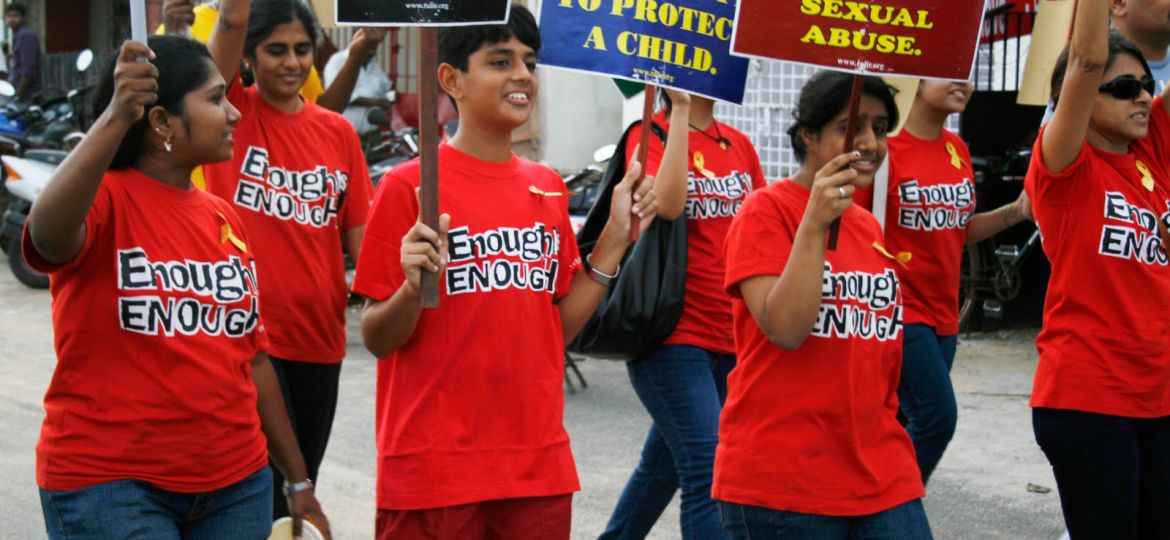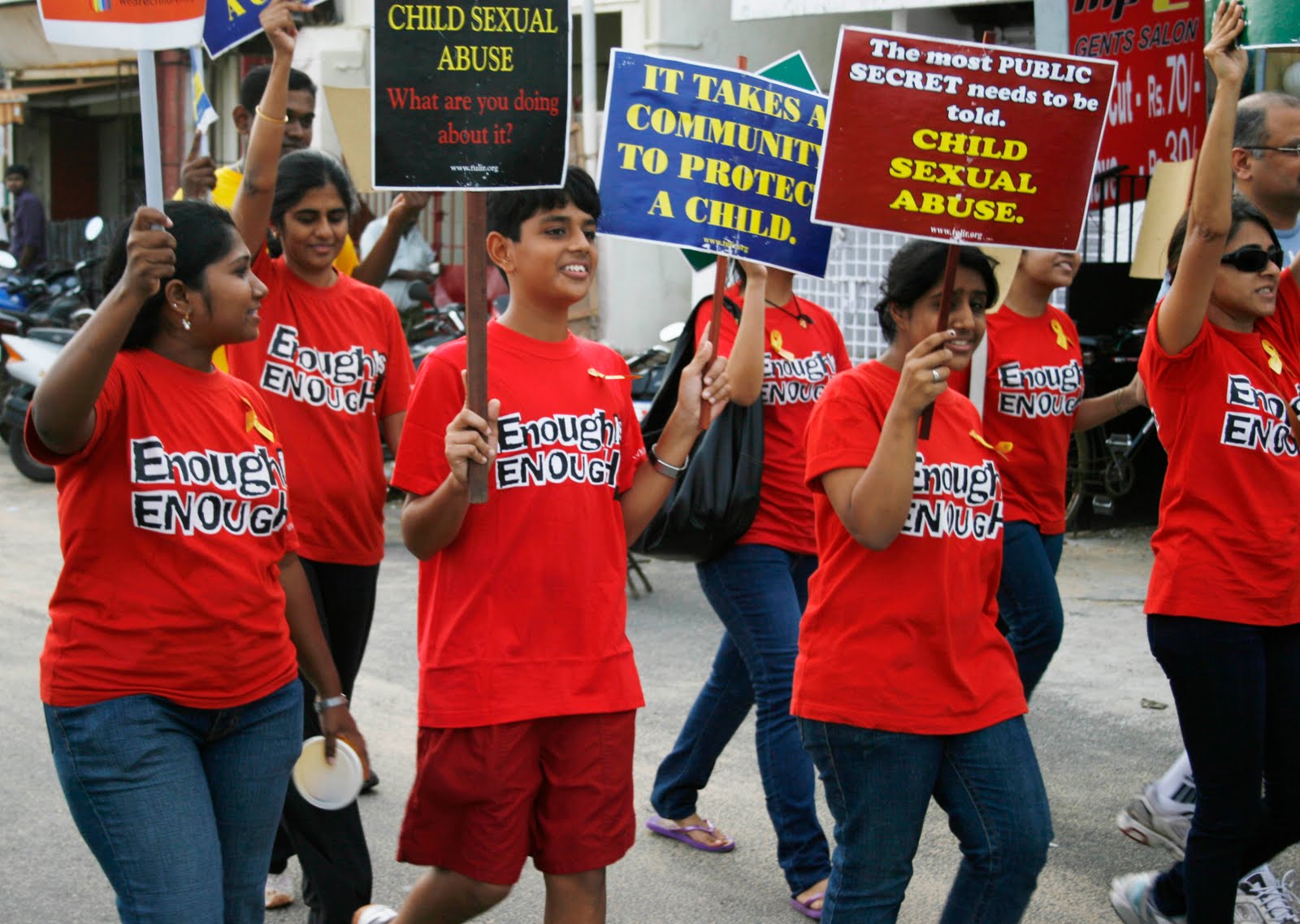
Our interview section this month features excerpts from three of our past interviews on issues in dealing with adolescent sexuality:

Shweta Krishnan: What about older children and the age of consent – what does the law say and how does this actually work?
Vidya Reddy: In India, the age under which any sexual activity is considered criminal has been raised to 18. I think we need to be reasonable and take it on a case-by-case basis. I know 14-year-olds who are more mature than 40-year-olds but we need to draw the line somewhere. So I draw the line at 16 for boys as well as for girls, to leave some room for exploration. Some countries say 14, but I would leave it at 16.
There’s something else: when you say 16, people imagine that you are saying go there and let it all hang out at 16. No, I think when you start having sexual intimacy you must be in a position to take responsibility for that intimacy, but at 16 with your hormones raging, you live in a sexualized world, and then they say, ‘Sorry folks, you cannot do anything until you are 18!’ It’s not going to work.
SK: So, currently child sexual abuse would be sexual abuse against boys and girls under the age of 18?
VR: I would like to look at it as sexual violence really, which is involving a child in some kind of sexual activity. This could be touching acts or non-touching acts. That ranges from sexualized comments, looking at the child in a sexualized way, taking sexualized pictures of the child, showing the child sexualized content, to actual acts of touching like fondling, caressing, to actual intercourse with a child, oral sex, masturbation. I would like to describe sexual activity as the entire gamut of adult foreplay along with some kind of penetration if it comes to it.
SK: What do you think about teenagers’ right to consent and when does this apply?
VR: What is consent in general when child marriage is not considered a big issue, but people have a problem with 17-year-olds who run away with each other? I heard of a case in Delhi: a 17-year-old girl ran away with a 17-year-old boy. Here, it boils down to who ran faster to the police station and filed a case. Anyway, the boy was arrested on charges of rape. The girl came to the court and said, “There was no rape. I consensually had sex with him.” So here you have a case where a victim is implicating herself. There are two accused and a non-existent victim. What does that say about our idea of consent!
Then there is child marriage, and a law that says it’s not rape if the girl is above 15 when her husband has sex with her. Under POCSO, child marriage could be an act of violence, but if we marry POCSO to the Prohibition of Child Marriage Act 2006, are we going to prosecute every fellow who is married to someone under 18?
And then, there is the mindset that your virginity is familial property. During the tsunami there was a spike in child marriages, because families in the camps felt unsafe and were afraid for the security of the child. So they thought it’s best she’s married off to some fellow. So what is consent here?
And take children on the streets, where barter sex is involved. You need a place to sleep, then you have to do a sexual favour. These people asking for sex are also kids. Is that abuse? And if that is not, was that consent?
Besides kids, you have adults who can’t really decide what consent is. Can a wife refuse to have sex with her husband? Is marital rape recognized? Consent is really still a very abstract idea even among adults. So, when it comes to teenagers what can be considered consent?
SK: That’s really interesting: on the one hand there is a 17-year old girl who implicated herself in a case of rape by acknowledging her desire for her 17-year old boyfriend, and on the other you have a young girl being forced into a marriage and into adult sexual behaviour? So, it seems to me almost as if consent according to the law was violated on both counts.
VR: Let me complicate it a little more. We live in a patriarchal society where really things boil down to virginity and women’s sexualities being controlled. So, really almost always the girl is seen as the consent giver. What about young boys? A 16-year old boy can have sex with a 33-year old woman and feel like he scored, but should the 33-year old woman have done it. Would we react in the same way if a 16-year old girl was carrying on with a 33-year old man. So, I’ll ask you – really what is consent?
You can read the rest of her interview here.
II. Dr Shanti Auluck is the Founder President of Muskaan, a voluntary organisation of parents and professionals providing comprehensive education, vocational training and work opportunities to young adults who are intellectually challenged. In July 2014, she was interviewed by Shalini Sinha on the role of sexuality education in their programme:
Shalini Sinha: Do issues of sex, sexuality and gender come up in your work with young adults with intellectual disability? If yes, what kind of issues?
Dr Shanti Auluck: Why would they not come up, we work with adolescents and adults, and they have the same set of needs as other ‘normal’ adolescent and adult groups have. Why is it expected that these issues do not exist or matter for our young friends?
We do confront these issues in our training and work environment in subtle ways. Our students get attracted to people from the opposite sex, they want to make friends – and not necessarily with people with special needs! Within the institution too, we see young ones seeking each other out, clearly expressing that they want a boyfriend/girlfriend. Many of our students express a desire to ‘marry’. There is curiosity about issues of sexuality and relationships … There are issues about physical changes and sexual and reproductive health, specially with our adolescent young girls. There are issues around intimacy, body image, self awareness.
These are very common issues normally, but in the context of intellectually challenged people, they are considered ‘inappropriate’, sadly so, and there are no opportunities or fora for them to talk about and exchange information with peers and friends, as other ‘normal’ people do.
SS: Are parents given information about sexuality and how to deal with it?
Dr SA: Muskaan is a parents’ body and we see parents as integral partners in everything we try to achieve with our students. There are so many negative societal attitudes to sexuality, often parents who want to address the sexuality concerns of their son/daughter, do not have any services that they can access. At Muskaan, we try to address these challenges that parents face.
During the orientation program that we have with the parents of new students, sessions on sexuality are always included. And to give credit to the parents, of late I have observed that parents are aware and sensitive to the issues, though they may not be clear about how to handle them. As I mentioned, our effort is to enrich the lives of our students holistically, so we do not just concentrate on the eight hours in a day that he/she is with us but also the many hours at home. We want our students to come to terms with their sexuality, and be comfortable with it, and in order to do so we need cooperation and partnerships which extend to our students’ homes too. So, parents are critical.
Personally, I have learnt a lot from my son – by just being sensitive and patient and by listening to him and trying to understand him and his needs. When he was young, I was nervous, yes slightly afraid too, of his adolescence! But I simultaneously realized that it is something we all have to deal with and I could not brush it aside or ignore it. So, I decided to deal with it head on and brought my personal learnings with my son to Muskaan and its students.
However, the fact is also there that most of the intellectually challenged people do not find the right opportunity and fora for sexual expression. I personally feel that ‘dating’ and even ‘marriage’ can work but we do need very good and sustained support systems. And that critical ‘support’ is so lacking for our children – in the community, from the government, not in opportunities, in resources! Like every other need of theirs, this also remains unaddressed and largely in the shadows.
You can read the rest of her interview here.
III. I
Jasmine George: You have been involved with the adolescent education program for NCERT (National Council of Educational Research and Training), how was the experience working on that.
Rituparna Borah: At Nirantar, we have been involved with adolescent education, see when we started working on young people’s sexuality education, it was merely as an advocacy effort because in 2007 the Centre banned sexuality education. I think at that time it was called Adolescence Education Program. At Nirantar, we realized first that we need to review the material that has been banned and then we need to have voices against the material. While reviewing the material we realized that the material was not up to the mark. They were only focusing on the HIV and AIDS framework, and had a fear based approach. They were not focusing on adolescents and at the centre was HIV and disease. When we realized this, we said that we will speak against the ban but we will also speak against the materials available then. We called for a national consultation, TARSHI also has been a part of it, and many other groups have been a part of it. We invited people to come and present their views and we presented a review of materials that are available. So, it started as an advocacy effort at the beginning and then we realized to have a proper understanding, we need to have lived experiences of working with young people. Thus, we started our work with young people. Starting with our literacy centre at Nirantar in Lalitpur district of UP, where we have a residential centre for young women.
JG: Do you think we need to have Comprehensive Sexuality Education as part of our school curriculum?
RB: Yeah, absolutely. If any group is working on Comprehensive Sexuality Education, they must start talking about gender from the beginning, you start talking about sexuality from the beginning, you start talking about caste and class and religion from the beginning. It’s very important, and when I say beginning, it means the age of 4 and 5 you need to start talking about gender rights. Schools have a bigger role to play because schools are the place where young people spend a lot of time so along with Comprehensive Sexuality Education there should b also be a change in the B.Ed curriculum so the teachers are comfortable teaching the young people about gender and sexuality. The system should change, should be renovated to the newer discourse of gender and sexuality.
You can read the rest of her interview here.
(Rituparna’s interview was transcribed by Ankit Gupta.)